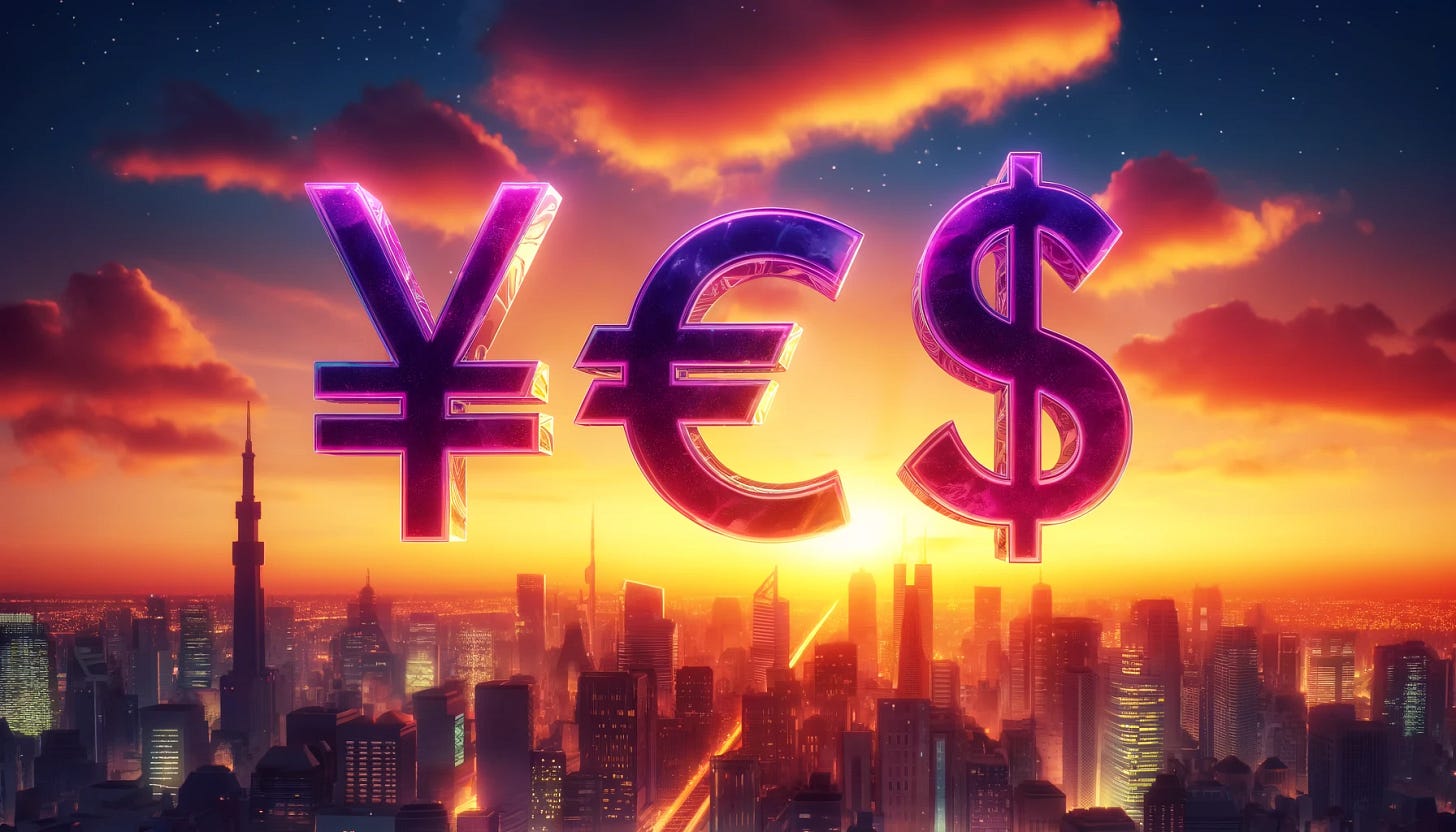The BoJ , The Yen & Central Banking Chess
Part 3: by Macro D
This is the third instalment of Macro D’s thought piece series.
Read Part 1 and Part 2 for context.
"Many men could have attained wisdom if they had not already attained it."
LUCIO ANNEO SENECA
I like to believe that, even if in Madame Lagarde's office, in Kaiserstrasse 29 (Eurotower) 60311 Frankfurt am Main, there was a bonsai to take care of, then even the growth path of a twenty-five-year-old called EURO would be able to avoid clashing with the thunder and lightning that often seek out those who think that the stars are always aligned in their favour.
Yes, we are in Frankfurt now, but if we are here, it is because, in another time zone, the Red-crowned crane[1] has cast its bait. Consequently, we wonder point blank.
Is the ECB falling into the Japanese trap?
But now, let's give time to time.
We will now dip our feet in our reasoning in the general picture, and immediately afterwards, we will pass with all our peaceful firepower through that door that will lead us to the terrace from where we can see the particular inserts of our final reasoning.
I would like to start with a sentence; after all, we have already recommended ourselves: let's give it time.
Gutta cavat lapidem - The drop digs the stone.
Lucretius
Well, yes, "To discover yourself, you must first expect".
After the ten rate increases in the last year, which served (successfully) to contain the inflationary pressure, we have seen that month after month, the distance between American and European inflation has widened, and this fact led us to correctly believe that the rate cut in Europe will happen before that in the States.
Can we compare the inflation of a particular hemisphere with that of another hemisphere?
Really, is this the same as inflation? Does it have the same characteristics? The same causes? Inflation is inflation, but a car is also a car, yet both Ferrari and Panda[2] exist. No, these are not identical cars, so why should they compete?
Why should the Panda start moving before the Ferrari to show the spectators that it is not afraid to make the first move?
Why should the Panda lead the way?
The data are these: the Eurozone is approaching the target of 2% in the medium term, while in the United States, the target seems to be moving away, given that inflation had fallen to 3.1% in November but then rose again up to 3.5%".
At this rate, I fear that the Fed will not start the cuts even by the end of the year (or, at most, it will intervene with a small adjustment at the end of the year).
At a time when inflation is persistent in the USA, and the Fed is not considering rate cuts, the ECB's readiness to take action could potentially lead to a situation that it may struggle to handle.
But really, can Europe afford to play arm wrestling with the United States? Europe has no raw materials, so the first consequence would be the importation of inflation through a rise in petrol and gas prices. The weakening of the Euro (a consequence of the rate cut) would help exports in the short term. Still, nevertheless, we cannot forget that nowadays, most governments of developed countries (indeed the American government) do not accept willingly that the international cost of a particular good has devastating repercussions on its domestic market in the face of a hypothetical US-EUROPE trade war, Europe would have to recognize in the concise term the end of the party resulting from its rate cut.
Again, we must remember that the United States has the reserve currency available; it is always the United States that is the net exporter of oil and the largest gas exporter in the world. Last but not least, if we decide to look at the question from the broader macro point of view that comes to mind, we are forced to recognize (and rather quickly) that beyond the internal diatribes at Capitol Hill, the United States is immensely more reliable than the European Union, which without to get all his souls to agree he can't even decide how many reams of paper to order from his supplier. In short, America can reasonably afford to take positions, changes of the guard, and sudden decisions that Europe cannot even imagine.
So I ask myself: can an elephant like Europe move more quickly than a butterfly like the United States? For the moment, I don't think so; for this reason, I think that the monetary policy committee of the ECB should refrain from cutting further in order not to run the risk of finding itself in a few months with a reduction in the economic spiral that had been initially mistaken for economic growth and a subsequent explosion in prices that had been mistaken (always initially) for a blown fuse. For Europe, it is much more convenient to leave the question of interest rates open (i.e. leave rates where they are). To avoid that, once Pandora's box has been opened; we will deal with a much more complicated problem, namely “Inflation”.
As we know, once wild horses escape from the enclosure, it is not easy to convince them to return.
Let’s explore further.




